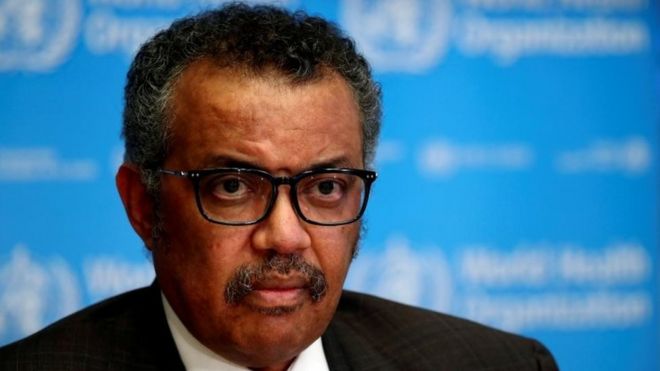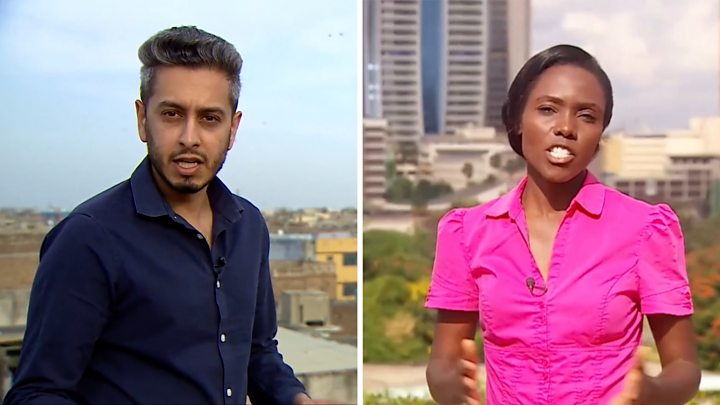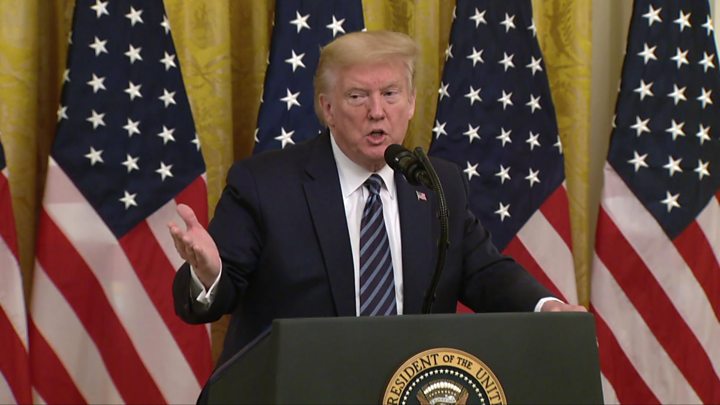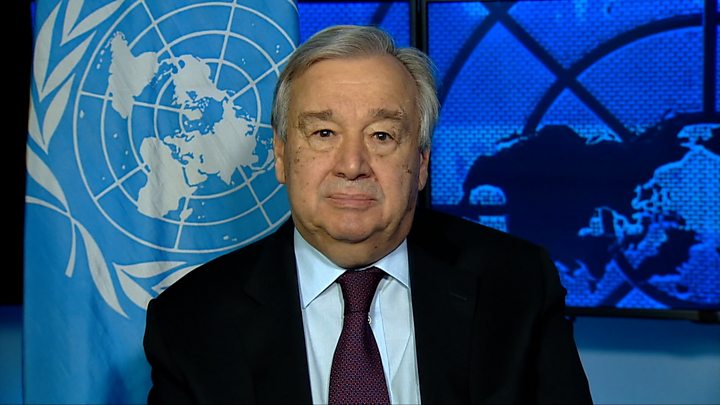Coronavirus: WHO defends coronavirus outbreak response
 REUTERS
REUTERS
The World Health Organization says it "didn't waste time" responding to the coronavirus after facing criticism for its handling of the outbreak.
Its head Dr Tedros Adhanom Ghebreyesus said the WHO's declaration of the virus as an international health emergency on 30 January gave "enough time for the rest of the world to respond".
At the time there were only 82 cases outside China and no deaths.
Today there are more than 3.2m cases and 234,000 deaths recorded worldwide.
US President Donald Trump has said the WHO "really blew" its response and accused it of bias towards China.
The US is the global health body's largest single funder and President Trump says he will halt funding.
Speaking at a news conference on Friday Dr Tedros offered a vigorous defence of how the organisation responded.
He insisted the WHO used the time before the declaration wisely, including visiting China to learn more about the virus at its origin.
Dr Tedros confirmed that the pandemic remained a "public health emergency of international concern", three months after it was declared one.
Such a declaration is made under an "extraordinary" event and requires a global response.
Dr Tedros described "grave" worries over the potential impact of the virus as it accelerates in countries with weaker health systems.

Officials said they had seen worrying increases in a number of these nations - including Haiti, Somalia and Sudan.
The WHO also urged caution among nations relaxing their social distancing measures, stressing the importance of monitoring for new jumps in infections as lockdowns are eased.

- LIVE: Read the latest updates
- A SIMPLE GUIDE: What are the symptoms?
- AVOIDING CONTACT: The rules on self-isolation and exercise
- HOPE AND LOSS: Your coronavirus stories
- STRESS: How to look after your mental health

Dr Tedros was also asked again about relations with the United States, insisting the UN agency remained in "constant contact" with the country.

The WHO's head of emergencies, Dr Michael Ryan, addressed the claim on Friday.
"With regard to the origins of the virus in Wuhan we have listened again and again to numerous scientists who've looked at the (genetic) sequences, looked at this virus, and we are assured that this virus is natural in origin," he said.
Dr Ryan also added that it was "important" to learn more about the animal host and understand how the virus jumped from animals to humans.
China has rejected the lab theory and criticised the US response to Covid-19.

In other developments around the world:
- The world's largest virus lockdown, in India, has been extended another two weeks
- The United Nations has warned that millions of children risk missing out on vaccines because of pandemic disruption
- May Day rallies have been taking place globally, but in scaled back or socially-distanced form
- Ten US states have begun partially reopening
- The UK government says it has met a target on testing; the opposition has called the figures misleading




/product/44/303993/2.jpg?2398)











No comments
Post a Comment